(单词翻译:单击)
War is hell. But for a few opportunistic and enterprising visionaries, it can also be a springboard to business success. Two of the biggest, bloodiest global conflicts in human history did more than rewrite maps and change the balance of international power — they provided the world with some of its most successful brands ever.
战争即地狱。但是对于那些投机取巧,有魄力有远见的人来说,战争也能有助于事业的成功。两次人类历史上最大、流血最多的世界大战不仅仅是重新划分世界版图,改变国际力量平衡,也给世界带来了一些古往今来最成功的品牌。
10.Instant Noodles
10.方便面
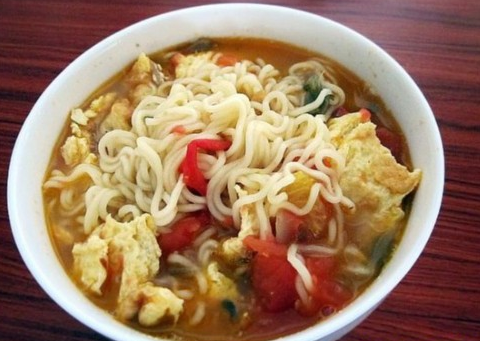
The journey of this inventor and businessman goes through not one, but two World War II occupations, and even into space. Born in Taiwan in 1910, Momofuku Ando was expatriated to Japan during their occupation of his island home. After the war in the Pacific came to a conclusion, Ando found himself under occupation by American troops and battling hunger alongside the newly-defeated Japanese.
发明方便面的是个商人,同时也是个发明家。第二次世界大战期间,他曾两次被投入监狱。之后他发明的方便面成为了太空食品。1910年安藤百福出生于台湾,日本侵占台湾期间,他移居日本。太平洋战争结束后,安藤发现自己也处在美军的统治之下,和刚刚战败的日本人一样,都在同饥饿做斗争。
It took Ando several years before his idea for cheap noodles went into mass-production, but after several attempts he finally found a formula that worked. College students in need of cheap sustenance can thank the endless food lines, desperation, and lack of surviving infrastructure in the wasted cities of Japan for giving Momofuku the inspiration and drive to develop his signature Cup of Noodles.
安藤花费了数年的时间才使廉价面条按照他计划的那样,进入大量生产,但是在多次试验后,他才终于找到一个有效的方法。那些在被遗弃的日本城市中,缺乏基本生存必需品的大学生们,应该感谢当时永无止境的饥饿,感谢那时深不见底的绝望,还有保障人们生存的基础设施的匮乏——是这些鼓舞着安藤百福发明了杯面。
9.McDonald's French Fries
9.麦当劳薯条
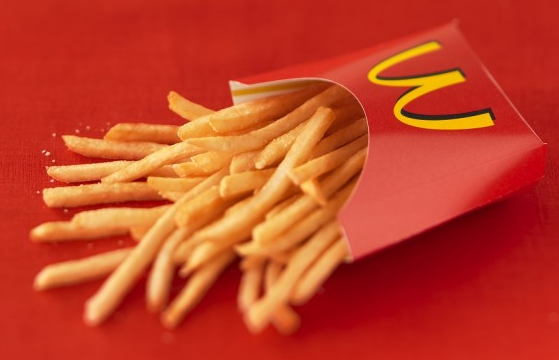
Graduating from pigs to potatoes, high school dropout J.R. Simplot developed the first ever freeze-dried potatoes and vegetables for the U.S. Army, right when international logistics threatened to derail Allied efforts in Europe. The longer shelf-life and easy reconstitution of Simplot's frozen veggies helped ensure troops overseas could be kept stocked with the food they needed to fuel their march through Europe.
从“养猪大户”到“土豆大王”,高中辍学的辛普劳首次为美国军队发明了冻干的土豆和蔬菜,此时正值国际后勤威胁要减少供应,打乱同盟国在欧洲的计划。辛普劳的冻蔬菜保存时间长且食用方便,为海上军队的必需食物供应提供了保障,确保他们在穿越欧洲的行军途中有足够的食粮。
When the end of the war dried up demand from his biggest customer, Simplot signed a contract with one Ray Kroc to provide frozen French fries. Fast-forward some 50 years, and Simplot's potato empire has permanently forced the association of “Idaho” and “potato” by providing McDonald's with more than 50% of its French fries worldwide.
随着战争的结束,最大的消费者对辛普劳冷冻食品的需求量几近枯竭,辛普劳于是和雷·克拉克签署了一份合同,向后者提供冷冻薯条。经过50年的快速发展,由于麦当劳公司超过50%的薯条都是由辛普劳公司提供,后者的土豆帝国使“爱达荷州”和“土豆”长久地联系在了一起。
8.Chemical Fertilizers
8.化肥
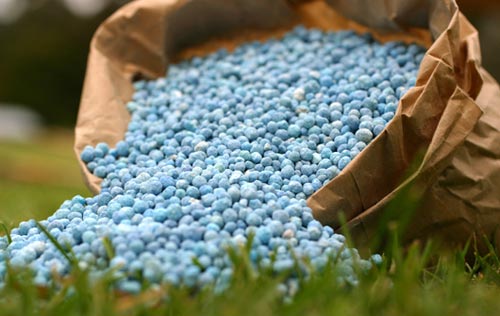
Back before the abundance of cheap food drove the world's population to unsustainable levels, agriculture was limited by the amount of nitrogen found in soil. While scientists had already discovered the link between nitrogen levels and crop yields, the fertilizer industry didn't really explode until it literally started making explosives. Starting in World War I, the chemical research of Fritz Haber allowed the German army to douse its enemies in deadly chlorine. In World War II the Allied Powers took the Haber Process further by manufacturing copious amounts of munitions through nitrogen synthesis. At the end of the war, these industrial-scale efforts were re-purposed to produce chemical fertilizers.
在大量廉价食品使世界人口增长到无法控制的境地之前,农业的发展一直都受到土地氮容量的限制。尽管科学家们早已发现氮元素与作物产量间的联系,但直到化学元素被用于制作炸药,化肥工业才真正开始蓬勃发展。第一次世界大战期间,化学家弗里茨·哈勃曾把德军的俘虏浸入具有致命毒性的氯水里来做研究。第二次世界大战时期,同盟国开始通过氮合成法大批量制造武器弹药。世界大战结束后,战时军工业性质的研究成果则被用来生产化肥。
7.Tampons
7.卫生巾
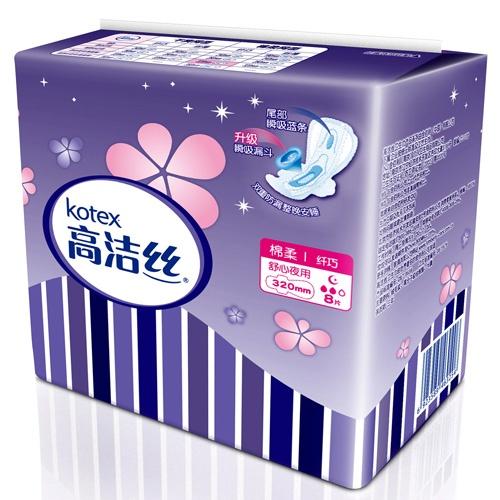
The world's favorite feminine hygiene brand didn't start as a sponge for ambiguous blue water. The haphazard medical conditions of World War I did more to kill troops than the actual fighting. To improve the situation, manufacturing company Kimberly-Clark developed a lightweight, highly absorbent gauze known as Cellucotton to help American soldiers injured in combat.
世界上最受喜爱的女性健康护理品牌并不是从一个用于吸收不明蓝色液体的海绵开始的。一战时期,死于医疗条件落后的人比实际战死的人要多得多。为了改善这种状况,金百利公司发明了一种轻便并具有超强吸收力的纤维棉,供那些在战争中受伤的士兵使用。
In the post-war years, leftover Cellucotton bandages were re-purposed by menstruating Red Cross nurses. Kimberly-Clark took note, and after a little tinkering produced their first sanitary napkin expressly for women's health. The Kotex model was replicated by Tampax in the midst of World War II, and over the following decades they refined their bandages-turned-pads into the cotton tubes we now know as tampons.
战后,剩余的纤维棉被当时红十字会正值经期的护士们重新利用起来。对这种纤维棉稍做改进后,金伯利公司最终推出首个用于维护女性健康的卫生巾。之后出现的高洁丝卫生巾的模型就是复制了二战中期出现的丹碧丝卫生棉条的产品,经过之后几十年的不断改进,女性的月经带最终演变成了如今的卫生棉条。
6.Teflon
6.特氟龙
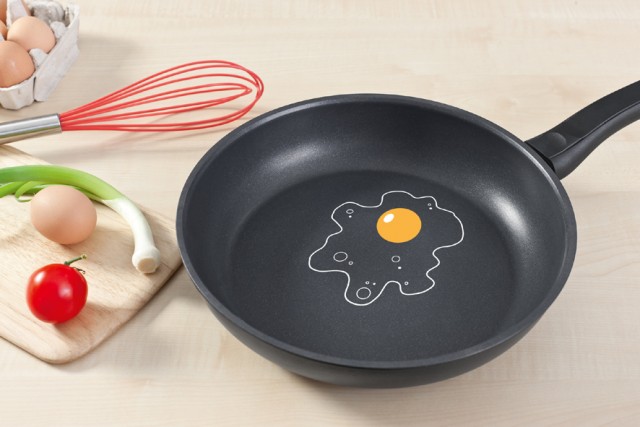
During World War II, Allied scientists were tasked with keeping military weaponry one step ahead of the fascists. The Manhattan Project commenced with the goal of making the biggest boom since the start of the universe. Teflon, accidentally discovered in 1938 by Roy J. Plunkett, came under intense demand almost immediately when it was found to withstand the volatile ingredients of the first atomic bombs. After the Project culminated with the destruction of two Japanese cities, Teflon would be repurposed most famously as a non-stick coating in pots and pans, as well as a stain-resistant coating for clothing.
二战期间,同盟国的科学家们承载着发明比法西斯分子更先进的军用武器的使命。曼哈顿计划着眼于制造出宇宙有史以来最大的原子弹。1938年,罗伊·普朗克特偶然发明了特氟龙,自从被发现可以抵抗第一颗原子弹中的挥发性成分,市面上对特氟龙的需求几乎是瞬间暴涨。毁灭了两个日本城市后,曼哈顿计划圆满完成。特氟龙也被改良为广泛应用于厨具中的不粘涂层,还有抗污渍的衣服面料。
审校:梅子九 编辑:旭旭 来源:前十网


